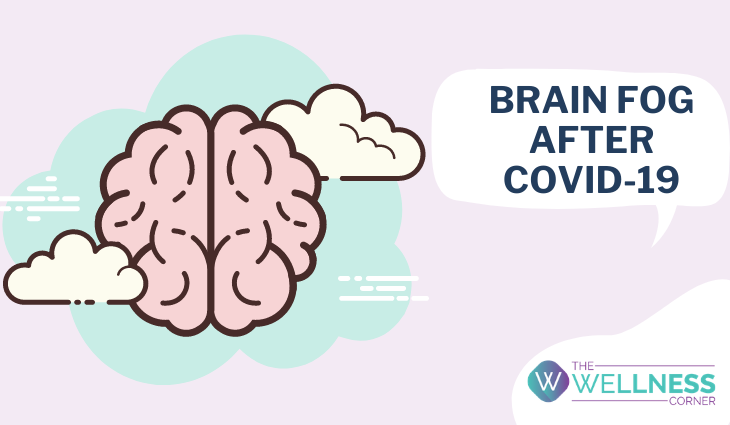In India, more than 2.5 crore people have recovered from COVID-19. COVID-19 recovery, on the other hand, comes with a cost for some. It was postulated that the infection's effects last far longer than previously thought. However, according to a recent study, diverse diseases and syndromes emerge among some patients post covid-19 recovery, indicating a failure to reinstate the standard level of health after a critical COVID-19 recovery.
One such health hazard that isn't widely discussed is brain fog. According to a new study, 65% of patients had symptoms similar to brain fog for at least six months following recovery. Let's have a look at it.
What Is Brain Fog?
Novel coronavirus patients who have recovered are complaining of problematic cognitive symptoms, diagnosed as brain fog. Numerous recovered Covid-19 patients have complained of confusion, delirium, trouble concentrating, dizziness, issues understanding everyday conversations, and memory loss.
Post recovery patients complain about forgetting names, failure to follow through business conversations, difficulty in planning and scheduling, severely anxious, and poor sleep quality. In 2020, a published study where 179 patients were examined for post-Covid-19 care assessment found that at least one symptom persisted in 87.4% of people, with fatigue and dyspnea being the most prevalent.
Other reported repercussions of Brain-Fog are:
- Short-term Memory Loss
- Problems Focusing
- Problems Concentrating
- Problems Finding Words
- Trouble With Daily Thinking
- Difficulty getting out of bed
- Alien hand syndrome
- Anxiety
- PTSD
What Are the Causes of Brain Fog?
There are currently no studies to differentiate the age/sex/location of long haul COVID-19 experience regarding brain fog. However, underlying conditions, other medications, diet, lifestyle, mental health (depression), lack of sleep, lack of exercise, or other vitamins/ hormones deficiency can aid in causing Brain fog. People who are more likely to have a lingering brain fog are those who had:
- Severe complications during COVID-19
- Oxygen deprivation
- Kidneys and other organs affected
- Inflammatory response of the immune system
- Fatigue from fighting the infection
- Clotting
You may also like: Ways To Look After Your Mental Health During Lockdown
Is SARS-CoV-2 Directly Affecting Brain Cells?
Medical theories suggest that when the body's immunological reaction to the virus fails to shut down or blood vessels leading to the brain become inflamed or when antibodies wrongly damage nerve cells, it causes altered mental functioning in a recovered patient.
According to a study published in the New England Journal of Medicine, the virus was not found in the brain tissue of COVID-19 individuals who were ventilated. However, the study showed that COVID-19 patients experienced hypoxic damage, which meant that their brain cells died owing to a lack of oxygen.
The fact that prolonged ventilation enhances hypoxia injury mystifies answers to queries about what causes this hypoxic injury and if it's specifically due to coronavirus infection. Overall, the infection may cause an increase in blood clots in other organs, and whether the micro-clots form in the brain is still a question.
You may also like: How Long Do COVID-19 Antibodies Last in Your System?
What Can You Do About It?
Post COVID-19 brain fog is real. However, it is not everlasting. Patients with severe consequences of brain fog can consider Constraint-Induced Therapy. Adopting an active and healthy lifestyle and playing scrabble/puzzle games can help in reducing brain fog. Other things that can help:
- Eating a nutritious diet
- Getting quality sleep
- Refraining from tobacco & alcohol
- Stimulate your brain
If the mental state, cognitive functioning, chest pressure, health anxiety, sleep cycles, and heart rate don’t feel normal —do not walk around with a zombie's brain. Consult a doctor on The Wellness Corner app if your mental symptoms are severe and your everyday life doesn't improve after a few weeks.
